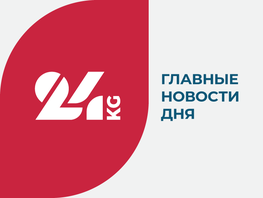Kyrgyz authorities should retract a recently devised bill increasing state control over the country’s public broadcaster and instead enact changes to safeguard the corporation’s editorial independence, the Committee to Protect Journalists (CPJ) said in a statement.
On October 29, 15 prominent media representatives and advocacy groups issued a statement calling on Kyrgyzstan’s Cabinet of Ministers and Ministry of Culture to withdraw a draft law on OTRK, the state-funded broadcaster.
The draft proposes altering the corporation’s official status from a «public television channel» to a «national state agency.»
As part of the changes, the broadcaster’s supervisory council, partially nominated by non-governmental organizations drawn from civil society, would be abolished, meaning the corporation’s general director will be appointed by the Kyrgyzstan president instead of the council.
The media representatives and organizations argue that these measures will remove public control over the broadcaster’s operations and legitimize «unlimited political interference» in its editorial policy.
«Proposals to grant the president the right to appoint the head of Kyrgyzstan’s state-funded broadcaster are deeply concerning and should be discarded at once,» said Gulnoza Said, CPJ’s Europe and Central Asia program coordinator. «While recognizing OTRK’s current shortcomings, the bill’s solutions run in entirely the wrong direction, and threaten to undermine journalistic freedom and ensure that the corporation will be nothing but a mouthpiece for state propaganda.»
Kyrgyzstan’s public broadcaster OTRK is the country’s largest and most watched television network, broadcasting on six television channels covering news, culture, sport and children’s TV, and five radio channels.
The corporation’s status was first altered from a «state» to a «public» broadcaster following Kyrgyzstan’s April Revolution in 2010, when the new authorities wanted to create a more politically impartial state-funded TV. Its 15-member supervisory council was given wide oversight powers over editorial policy and budgetary matters. Under current law, five council members are nominated by the Kyrgyzstan president, five by Parliament, and five by civil society groups. The members serve for five years and elect the general director every four years.





